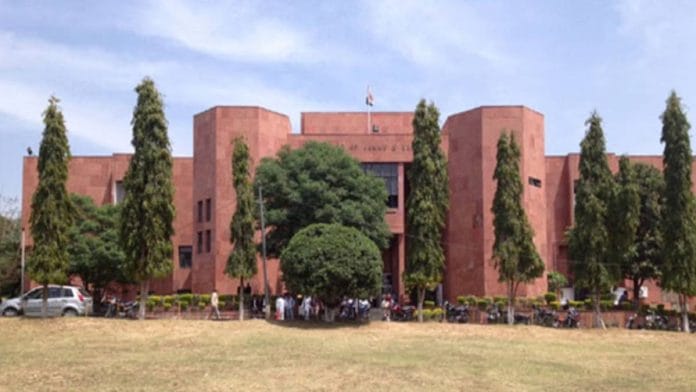New Delhi: The High Court of Jammu & Kashmir and Ladakh Monday declined to grant interim relief in a series of petitions challenging the decision of the Union Territory administration to ban the sale of 25 books on Kashmir’s political and social history for allegedly promoting secessionist ideologies. This means the ban on the publications will continue until the court concludes its final hearing in the matter.
The petitions had challenged a 5 August notification by the J&K home department that declared the 25 books “forfeited” under Section 98 of the Bharatiya Nagarik Suraksha Sanhita (BNSS) for allegedly spreading anti-India narratives, glorifying terrorism and vilifying the security forces. The notification was published in the official gazette.
Under Section 98, a state government may declare any publication forfeited if it contains material punishable under laws relating to offences against the state or public order, and can authorise the seizure of such works.
According to the home department, the “systematic dissemination of false narratives and secessionist literature” has contributed to youth radicalisation in J&K by glorifying terrorism, vilifying security forces, distorting historical facts and promoting alienation.
The notification stated that the listed books were therefore “forfeited” under Section 98 BNSS, alleging that they “excite secessionism and endanger the sovereignty and integrity of India”, thereby attracting Sections 152, 196, and 197 of the Bharatiya Nyaya Sanhita, 2023.
The administrature argued that these works collectively fostered separatist sentiments and encouraged hostility towards India.
The petitioners, including several well-known authors and academics, contended that the notification was arbitrary, disproportionate, and unsupported by clear reasoning, violating the safeguards required under Section 98. They maintained that the administration’s sweeping ban restricted academic freedom and criminalised critical scholarship on Kashmir’s political and social realities.
A three-judge special bench led by Chief Justice Arun Palli, and comprising Justice Rajnesh Oswal and Justice Shahzad Azeem, issued notice on the individual petitions filed by authors, scholars and publishers, but declined to entertain a public interest litigation (PIL).
The bench held that the issue was not of broader public importance, observing that “90 percent of people would not understand the issue”.
The court was also not inclined to hear the matter of constitutionality of Section 98 and said it would be heard on the next date of hearing, in the first week of December.
The list of banned works includes publications by Sumantra Bose, A.G. Noorani, Arundhati Roy, Seema Kazi, Hafsa Kanjwal, and Victoria Schofield, many published by leading international academic presses such as Oxford University Press, Stanford University Press, and Routledge.
Earlier, on 29 August, the Supreme Court had directed the petitioners to approach the Jammu & Kashmir and Ladakh High Court to challenge the forfeiture order, prompting the formation of the full bench on 30 September.
With the HC’s refusal to grant interim relief, the forfeiture order remains in effect, preventing the sale, circulation or possession of the 25 books until the petitions are finally decided.
(Edited by Nida Fatima Siddiqui)






